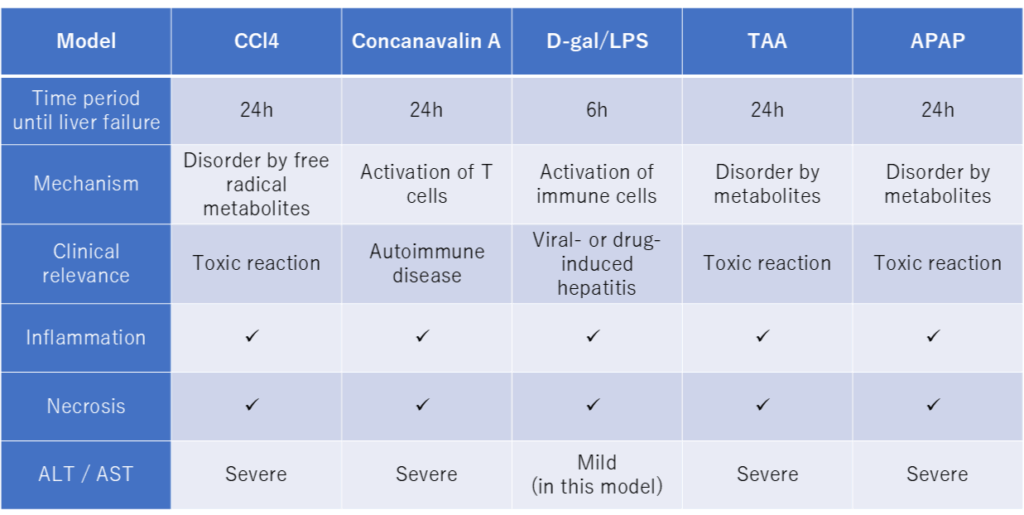SMC MODELS
CCl4-induced acute liver failure model
The CCl4-induced liver failure model
The CCl4-induced acute liver failure model (Carbon Tetrachloride) is a rapid model that induces acute liver failure in mice due to the hepatoxic CCl4. It is a widely used model for researching the mechanisms of acute liver injury (dysbolism, inflammation, necrosis etc.). Further applications for this model include research on liver regeneration and the development of new drug candidates as therapeutics.
A single shot of CCl4 is administered intraperitoneally to 7-weeks old, female C57BL/6J mice which then develop acute liver failure after just 24h. This model can be used for pharmaceutical drug evaluation in either a therapeutic or preventive study.
Comparison of different acute liver failure (ALF) models

For a more in-depth information on each model feel free to check out our other ALF models:
D-gal/LPS Acute Liver Failure Model
Concanavalin A Acute Liver Failure Model
APAP Acute Liver Failure Model
Analysis items and key endpoints
Histopathological analysis
HE Staining for evaluation of necrosis / inflammation
Immunohistochemistry
For different molecular markers
Biochemistry analysis
ALT
AST etc.
Gene expression analysis
TNF-α
IL-6 etc.
Cytokine analysis
TNF-α
IL-6 etc.
Contact us
If you are interested in discussing how this model can support the pharmacological evaluation for your drug candidate, please reach out to us using the contact button below.
